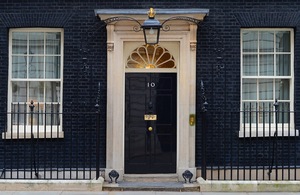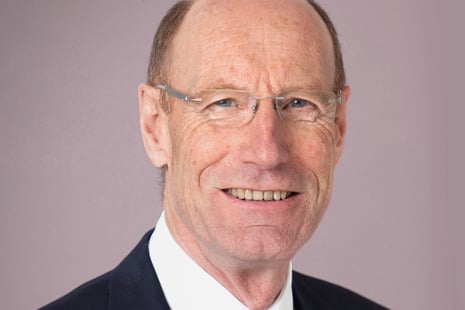Levelling Up to require 'system change' of how government works
English regions will become eligible for London-style devolution deals, as Government sets out an ambitious agenda to reset how the public sector works to tackle 12 new 'national missions' over the next eight years.
 The plans are set out in a new Levelling Up White Paper, released today, which sets out a complete ‘system change’ of how government works.
The plans are set out in a new Levelling Up White Paper, released today, which sets out a complete ‘system change’ of how government works.
At the heart of this new way of making and implementing policy will be 12 bold, national missions - all quantifiable and to be achieved by 2030.
These missions are the policy objectives for levelling up, and thus form the heart of the government’s agenda for the 2020s. They will be given status in law in a flagship Levelling Up and Regeneration Bill.
 “The United Kingdom is an unparalleled success story. But not everyone shares equally in the UK’s success. Levelling Up and this White Paper is about ending this historic injustice and calling time on the postcode lottery,” said Levelling Up Secretary Michael Gove. “This will not be an easy task, and it won’t happen overnight, but our 12 new national levelling up missions will drive real change in towns and cities across the UK, so that where you live will no longer determine how far you can go.”
“The United Kingdom is an unparalleled success story. But not everyone shares equally in the UK’s success. Levelling Up and this White Paper is about ending this historic injustice and calling time on the postcode lottery,” said Levelling Up Secretary Michael Gove. “This will not be an easy task, and it won’t happen overnight, but our 12 new national levelling up missions will drive real change in towns and cities across the UK, so that where you live will no longer determine how far you can go.”
Resetting local/central government relationship
The government recognises that if it tries to level up the UK alone, it will fail. That is why the White Paper details the largest devolution of power from Whitehall to local leaders across England in modern times.
Touting the success of mayors like Andy Street, Ben Houchen and Andy Burnham, the government has proposed that this ‘devolution revolution’ will be a new model for England.
Nine local authorities are among the first wave to be invited to agree new county devolution deals - Cornwall, Derbyshire & Derby, Devon, Plymouth and Torbay, Durham, Hull & East Yorkshire, Leicestershire, Norfolk, Nottinghamshire & Nottingham, and Suffolk.
The White Paper announces negotiations for a new Mayoral Combined Authority deal for York and North Yorkshire and expanded Mayoral Combined Authority deal for the North East, as well as negotiations for ‘trailblazer’ devolution deals with the West Midlands and Greater Manchester to extend their powers - with these deals acting as blueprints for other Mayoral Combined Authorities to follow.
By 2030, every part of England that wishes to have a ‘London-style’ devolution deal will have one.
 "We must use this Levelling Up White Paper as an opportunity to reset the relationship between national and local government and put councils at the heart of delivering their own local strategies, alongside the government’s ambitious programme to improve opportunities in all parts of the country," said Cllr James Jamieson, Chairman of the Local Government Association. "With the right tools, councils can help rebuild their communities and address the challenges that have been bought by the pandemic."
"We must use this Levelling Up White Paper as an opportunity to reset the relationship between national and local government and put councils at the heart of delivering their own local strategies, alongside the government’s ambitious programme to improve opportunities in all parts of the country," said Cllr James Jamieson, Chairman of the Local Government Association. "With the right tools, councils can help rebuild their communities and address the challenges that have been bought by the pandemic."
The missions will be underpinned by a suite of public metrics to track progress and monitor the evolution of spatial disparities.
The government will legislate such that it has a statutory duty to publish an annual report updating the public on the progress of these missions, with a new Levelling Up Advisory Council including members such as Sir Paul Collier, renowned economist at Oxford’s Blavatnik’s School of Government, providing further support and constructive analysis.
Other parts of the ‘system change’ include: all policy across Whitehall being aligned with the levelling up agenda and therefore subject to spatial analysis, and a transformation of the government’s approach to data and evaluation - with a new independent body created to improve transparency of local government performance.
 “Manufacturers will enthusiastically embrace this strategy which is a vital building block in spreading growth to all parts of the UK," said Stephen Phipson, Chief Executive of Make UK, the trade body representing British manufacturing. "While there is substantially more to be done, this focus on skills and innovation, together with an emphasis on infrastructure and place, is the right starting point and one that industry will back.”
“Manufacturers will enthusiastically embrace this strategy which is a vital building block in spreading growth to all parts of the UK," said Stephen Phipson, Chief Executive of Make UK, the trade body representing British manufacturing. "While there is substantially more to be done, this focus on skills and innovation, together with an emphasis on infrastructure and place, is the right starting point and one that industry will back.”






